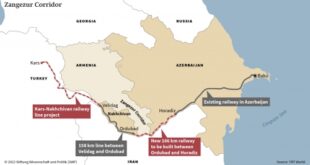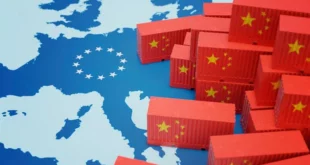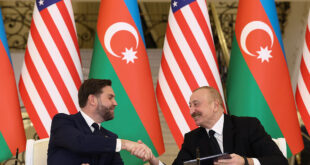 Observers say violence in Ingushetia’s main town shows republic is spiralling out of control.
Observers say violence in Ingushetia’s main town shows republic is spiralling out of control.
A growing confrontation between the authorities in Ingushetia and a new opposition movement is turning violent and making this autonomous republic the most volatile region in the North Caucasus.
The situation took a turn for the worse on January 26 after the security forces violently broke up an opposition rally in Ingushetia’s main city, Nazran, and two buildings were set on fire.
Â
The opposition blame the Ingush president, former FSB general Murat Zyazikov, for the deteriorating situation, while the authorities say the opposition is undermining public order.
Â
“In my view what is happening today in Ingushetia shows that the authorities are in a panic,” Aslambek Apayev, an expert with the Moscow Helsinki Group in Nazran, told IWPR. “That is how I explain the use of force against demonstrators on January 26, and the persecution of leaders of a protest which was held with the aim of supporting President Vladimir Putin and countering the wave of abductions and murders which has overwhelmed Ingushetia recently and also the corruption which has penetrated practically all spheres of life.”
Â
Apayev said that more than 150 people had been abducted or disappeared in recent years in Ingushetia, amongst them many who had nothing to do with Islamic militancy, the authorities’ main bugbear.
Â
“For example, in the course of just three days – January 30 to February 1 three young lads were killed by the security forces in or near to Nazran – 24-year-old Jabrail Mutsolgov, 23-year-old Ramzan Nalgiev and 21-year-old Yusup Chapanov. All three were shot without warning and then declared to be [Islamic militant] fighters,” he said. “Naturally these extrajudicial killings make the population extremely angry.”
Â
The organisers of the January 26 rally said they wanted to call Zyazikov to account for a series of promises and declarations which they say are pure fiction.
Â
“We want to demand [that Zyazikov] show us the factories which he has supposedly built,” opposition leader Maksharip Aushev said in an interview. “The media have reported that he has repeatedly reported to the leader of the country, Putin, that 70 or 80 factories and three million cubic metres of housing have been built in Ingushetia.”
Â
On January 25, the day before the rally was due to be held, the authorities suddenly announced an alert for an imminent “terrorist act”, and declared a “counter-terrorist operation zone” in part of Nazran, the Ingush capital Magas, and a district adjoining Chechnya. The movement of people and transport was restricted and the security forces were given the right to detain anyone suspicious.
Â
In defiance of this, young people began gathering in the streets around Nazran’s Accord Square early in the morning of January 26. The square itself was blocked by Russian soldiers and the Ingush OMON or riot police. According to various sources, between several hundred and 1,500 people assembled.
Â
Violence soon broke out between the protestors and the security forces. The former threw stones and Molotov cocktails, while the latter fired shots in the air and used tear-gas and rubber truncheons against the demonstrators. The town’s biggest hotel, the Assa and the office of the pro-government newspaper Serdalo were set on fire, the latter suffering serious damage.
Â
The authorities accused the demonstrators of starting the fires and attacking the police.
Â
“From the beginning this was an illegal protest,” an Ingush police officer who did not want to be named told IWPR. He claimed the organisers recruited protest participants by promising a “free charitable lottery” with lavish prizes.
Â
One of the opposition leaders, Magomed Yevloyev, told the NewTimes.Ru news website that the fires were caused not by his supporters, but by agents provocateurs. He added, “We have unmasked these provocateurs. We have learned that the personal guard of the head of the interior ministry, Musa Medov, took part in the arson attacks on the office of Sardalo and the Hotel Assa. But they are trying to accuse me of these acts. I was not even at the rally. I was unable to get to Nazran that day.”
Â
Amongst those detained were two well-known human rights activists from the Memorial group, Yekaterina Sokiryanskaya and Tamerlan Akiev, and several journalists including the deputy editor of Ekho Moskvy radio, Vladimir Varfolomeyev, and his colleague Roman Plyusov. Two journalists, Said-Husein Tsarnayev and Mustafa Kurkiev, were accused of setting fire to the newspaper office and were beaten by police. Almost all of those detained were released the same day.
Â
Apayev said 201 people had been detained around the square, of whom seven remained in detention.
Â
Most Ingush looked on anxiously. “I live in a multi-storey building near Accord Square in Nazran, and I saw how both sides behaved – the police and the lads who gathered there,” said Khadi Sagova, a local resident.
Â
“I’m no supporter of Zyazikov, but all the same I would say that the actions of the police were provoked by the protestors. When attempts were made to try to get them to leave the square, they began throwing stones, sticks and bottles of petrol and oil at the police. Of course, the police quickly caught up, as they say. It’s a good thing no one was killed.”
Â
Another local resident, Ruslan Tumgoyev had similarly mixed feelings.
Â
“I don’t believe either in the decency of Zyazikov or in the pure intentions of our opposition,” he said. “Zyazikov made it into power and now he is enjoying all the benefits of that position. The opposition is trying to take his place or to put their own person there so as to impose their own rules.”
Â
Tumgoyev concluded, “Like a lot of people here, I’m just terribly worried that the clash between the opposition and the authorities could lead to chaos and anarchy, and turn our republic into a second Chechnya.”
Â
The opposition had declared its intention to hold another rally on February 23, the anniversary of the Stalinist deportations of the Ingush and Chechen nations, but they are now saying they have postponed all protests until after the Russian presidential election due on on March 2.
Source: IWPR
 Eurasia Press & News
Eurasia Press & News



